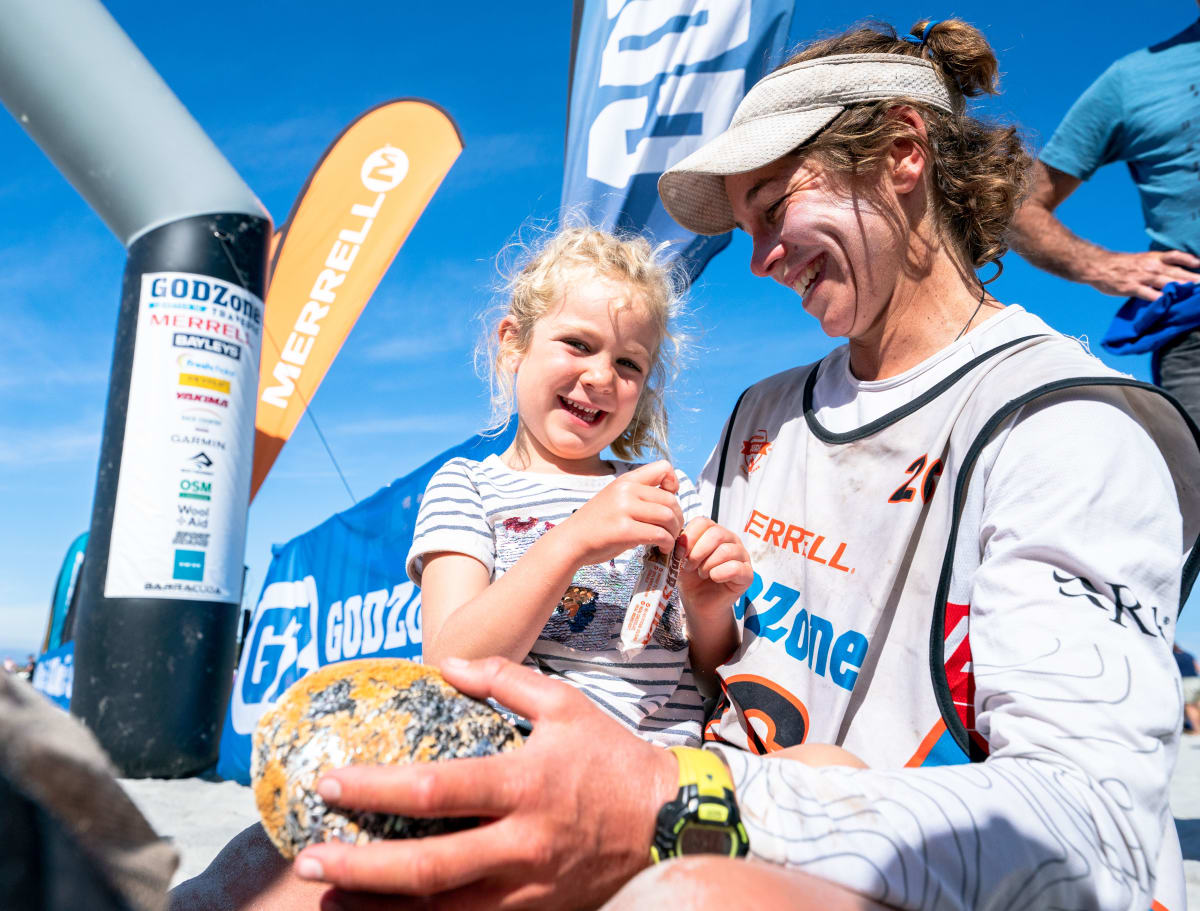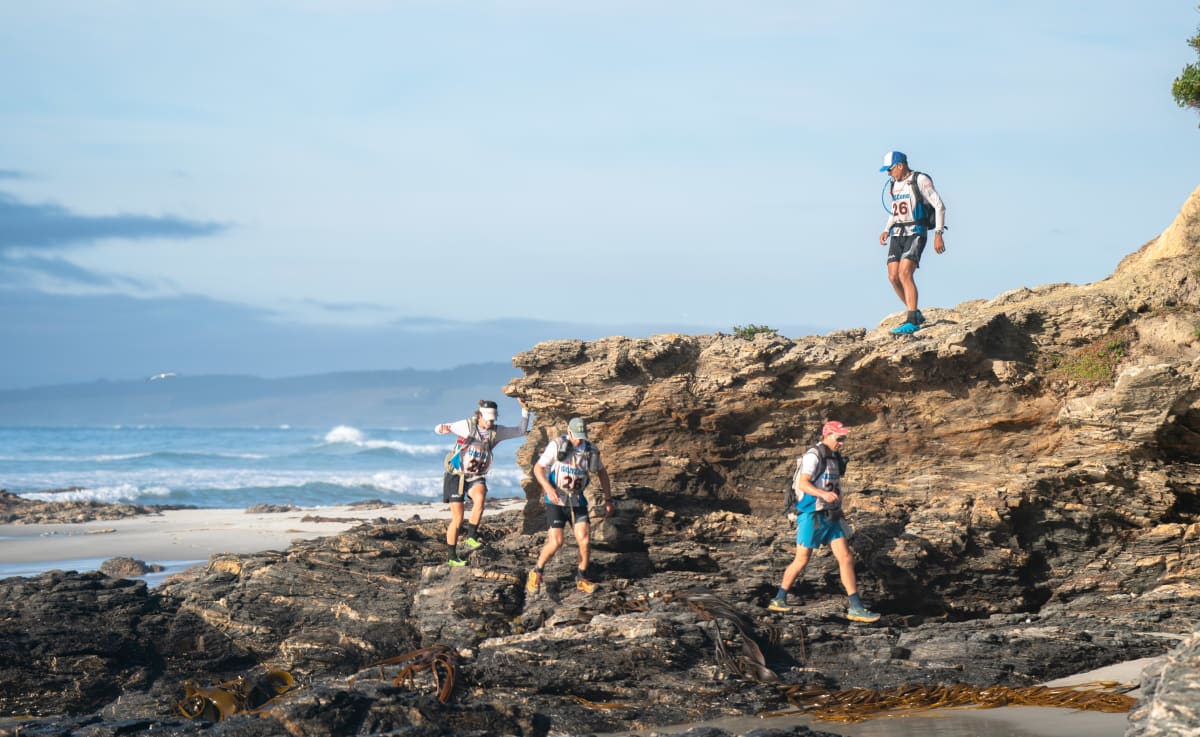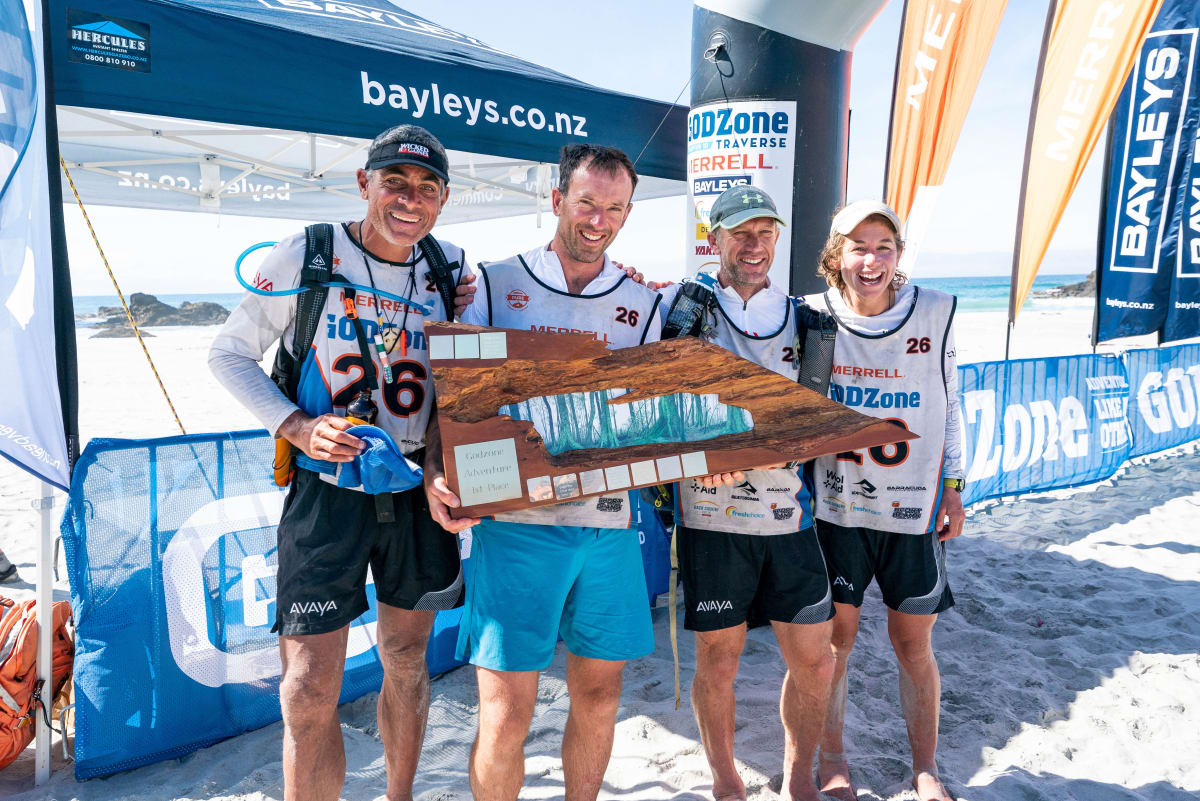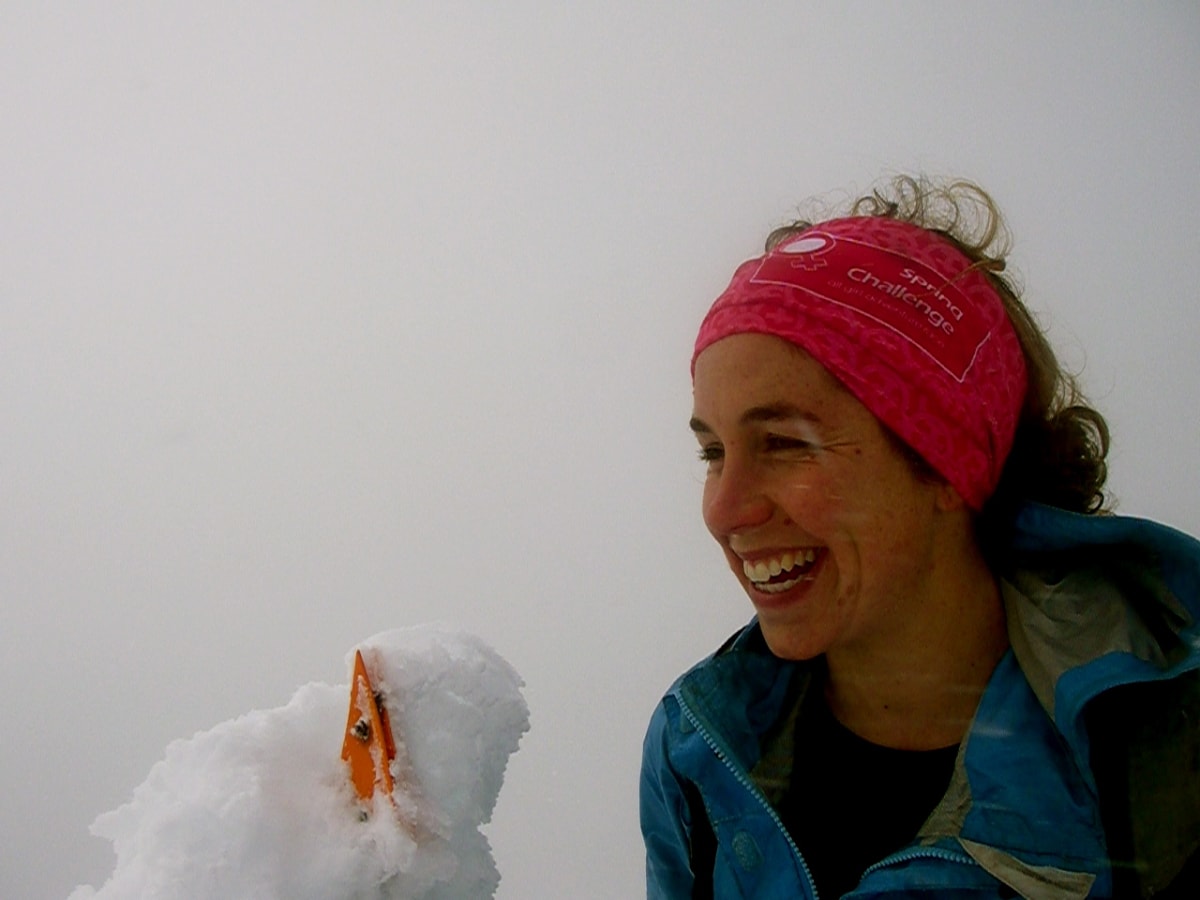
After a week in the wilderness, Sophie Hart has won another GODZone Adventure title. But nothing was as challenging for the Nelson doctor than losing her home to floodwaters.
If it's true sport is training for life, then Sophie Hart has taken the resilience she’s learned as one of the world’s top adventure racers and used it to get through a family disaster.
This week, Hart helped power Team Avaya, undisputedly the world’s best adventure racing team, to win another gruelling GODZone Adventure race.
Hart and her three male Avaya teammates - Nathan Fa'avae, Stu Lynch and Chris Forne - took an early lead in the world’s biggest expedition adventure race, and never relinquished it. The returning champions paddled, trekked and biked for 710km across the lower South Island in seven days, crossing the finish line on Dunedin’s Brighton Beach just before midday on Thursday.
"We've got such a good team around us and we all enjoy racing with each other," Hart said at the end of the 10th GODZone event. "At the end of the day, we have a lot of laughs out there and we have some hard times. But we want to do well for our team-mates."
No other team even came close to Avaya, and Hart’s celebrations may be even sweeter given the challenges she’s had to overcome in the past nine months.
Back in July, Hart, her husband, Nick, and their two young daughters moved into a new home they’d built in Marlborough. They lost it less than a week later to floodwaters.
Hart, a Nelson GP, knows the power of positive thinking has helped her as both a world champion and a working mum.

Yet the catastrophic flood event in Marlborough last winter proved to be her ultimate challenge: adapting to family life with two toddlers in a temporary home in their garage.
"We're not allowed to call it a garage anymore - it's a cabin," Hart laughs.
Their brand-new home on Queen Charlotte Drive was completely flooded after a major slip diverted a creek. The house has now been “totally stripped”.
"We just evacuated to the neighbour's place and spent the first night there. Then we found a place we could move into up the road," she says.
Their positive outlook was challenged once again by a stroke of bad luck – their septic tank caved in, forcing the family of four to move again. "We were spread out over three houses for a while," Hart says.
While their big adventures and solo training missions were put on hold, their family adventures continued. With Nick trying to make progress on the cabin renovations, "the easiest thing was for me to take the kids out," Hart says.
"We've got a little inflatable raft, so there were a lot of local daily adventures for us. I managed to get away tramping with friends for the night. Thanks to the group of 10 [allowance under Covid restrictions], I was able to take our two kids away on my own."
A two-time winner of the Kathmandu Coast to Coast longest day, Hart commutes regularly to Nelson for work, so she turned that routine into regular exercise - keeping both fitness, and spirits, high.
"The road between us and Havelock was closed. So I was biking from our house, up over the hill to my car, putting my bike in the boot and driving to work in Havelock," she says.
Even when describing these extraordinary trials and tribulations, you can almost hear the soft-spoken mother-of-two smiling over the phone as she speaks.
Hart is relentlessly patient. Although in the background, Nick was racing against time - and dealing with toddlers' mood swings - to convert the 36sqm garage into a livable dwelling.

Her life has certainly changed with a young family. "When I was doing a lot of racing, I was immersed in it, and I really loved it. We were travelling overseas twice a year. It was a really, really big part of my life,” she says
"Since having children, it got put on hold, as things do."
Many Kiwi women could have recognised themselves in the smiling GP standing on the adventure racing world championship podium in 2012, 2014 and 2015.
As part of Team Seagate's world titles in France, Brazil and Ecuador, Hart cemented her place in adventure racing history.
Yet when she lined up in the World's Toughest Race: Eco Challenge Fiji in September 2019, Sophie Hart was hardly a household name.
She was one of four New Zealanders who took on 43 of the toughest teams on the planet and ensured Aotearoa came out on top. Just nine months earlier, she’d given birth to her second child, Huxley.
"It wasn't a case of was I ready," she recalls. "The question was, ‘Is my family ready?'"
The recognition that means the most to Hart, however, has never been personal. She’s on a mission to see Aotearoa recognise the achievements of wāhine in sport.
In 2016, with four GODZone victories on her resume, Hart reshaped the Seagate team into an all-female team - unusual given the common adventure racing format of teams of three or four men and one woman.
Her inspiration came from a particular river crossing, the memory of which still makes Hart "edgy".
At GODZone 2015, teammate Chris Forne stepped into a swollen river crossing, and Hart followed.
She reflected on the experience in a Facebook post: "I made a really dumb decision to cross a swollen river. Chris had swum over already and I followed. I nearly didn't make it across. It still makes me edgy thinking about it now. Why did I do that? I should know better.

"All of my racing, all of my outdoor adventures, I've done with people who are more experienced and stronger than me. It's natural to let the decisions fall to them. But what showed in that river crossing is that I need to make my own decisions. I can't keep relying on others to lead the way for me."
Hart’s quartet - with Fleur Pawsey, Emily Forne and Lara Prince – competing in GODZone 2016 was possibly the world's best female team in adventure racing history.
Her words at the time confirmed her end goal - yet told a much bigger story. "We're going to make smart decisions. We're going to focus on our own race, and in doing that, we hope to be competitive, hopefully within the top 10. We have nothing to prove, we have nothing to lose."
The course took in several national parks, mountain ranges, sea paddling and white-water rivers, as well as mountain biking routes through forest and remote countryside.
The all-women Team Seagate finished 11th in a field of 61 international teams, making headlines and blazing a rather inspiring trail.
But six years later, her own spotlight matters less than the chance to advance the focus on women in sport, and promote equality in coverage.
On the eve of the 2018 Kathmandu Coast to Coast, Hart helped a captive media audience understand exactly how close the cause is to her heart.
At the Kumara pre-race press conference, she used the word "abysmal" to describe historic coverage of the women's race; past winners coming away with no more than a tail-end sound bite.
Hart admitted it’s a tricky situation: “You don’t to go out there and be seen to be seeking attention. Last year [2017] the coverage of the women’s race was so poor. The guys were out there having such an awesome race. But there was an equally exciting race between the women, and I just felt that it had been totally missed."

The multisport legends who Hart calls her mentors and inspiration happen to also be advocates for more attention on female athletes - Neil Jones, Kristina Anglem and Nathan Fa'avae.
Anglem (nee Strode-Penny) came into prominence with a remarkable win in the Length of New Zealand race in 2001, where she finished sixth overall against the men. She was one of the best female athletes to ever compete in the Coast to Coast.
Jones’ love for adventure racing dates back to the very early days of the sport. The Bay of Plenty event organiser has competed at the top level and graced all of the iconic expedition races around the globe.
Fa’avae was a semi-professional and full-time professional athlete for 18 years. During that time, he represented his country in four different sports and captained the New Zealand adventure racing team to six world championship victories.
"Nathan is an advocate for living that lifestyle in the outdoors - not just getting up to go training,” Hart says. “He's been the most influential person in terms of my sporting achievements - hands down."
Hart took a break from the world circuit; the global pandemic pressed pause on both national and international opportunities to compete. In the meantime, she completed another the Spring Challenge last November – just because she could.
New Zealand's Spring Challenge, created in 2007 by Fa’avae, is a chance to keep connected to the adventure sport community. For Hart, keeping fit is more a habit than a chore.
"The environment that's been created by the Spring Challenge is a really supportive one. When you turn up as a newbie, you don't feel quite so out on a limb. You feel much more that ice has already been broken,” Hart says.

She says often rogaine – cross-country navigation - events have mostly women participating, and that interest in adventure sport for Kiwi women of all ages continues to grow.
"The reason it’s at the level it is here is entirely because of the Spring Challenge. Before that, it would be unusual to see women out and about mountain biking together. There's no other reason for it," she says.
Hart is quick to emphasise it's become much more than an event, but a lifestyle, with mums competing alongside their daughters, and women going on to do other events. "The Spring Challenge is bigger than anything. You go line up at the adventure racing world champs and GODZone, and there's hardly any people,” she laughs.
Although she has great memories from the circuit - the teamwork, the travel, the trophies – even stronger in her mind is the trust and confidence her mentor, Fa’avae, has shown in her capability. Winning one of the world's toughest races pales in comparison to a simple compliment from a fellow champion. Says Fa'avae of Hart: "She's the best female adventure racer of modern times - probably ever."
Correction: This article originally had the participants finishing at Brighton Beach in Christchurch. This has been corrected to Dunedin.







